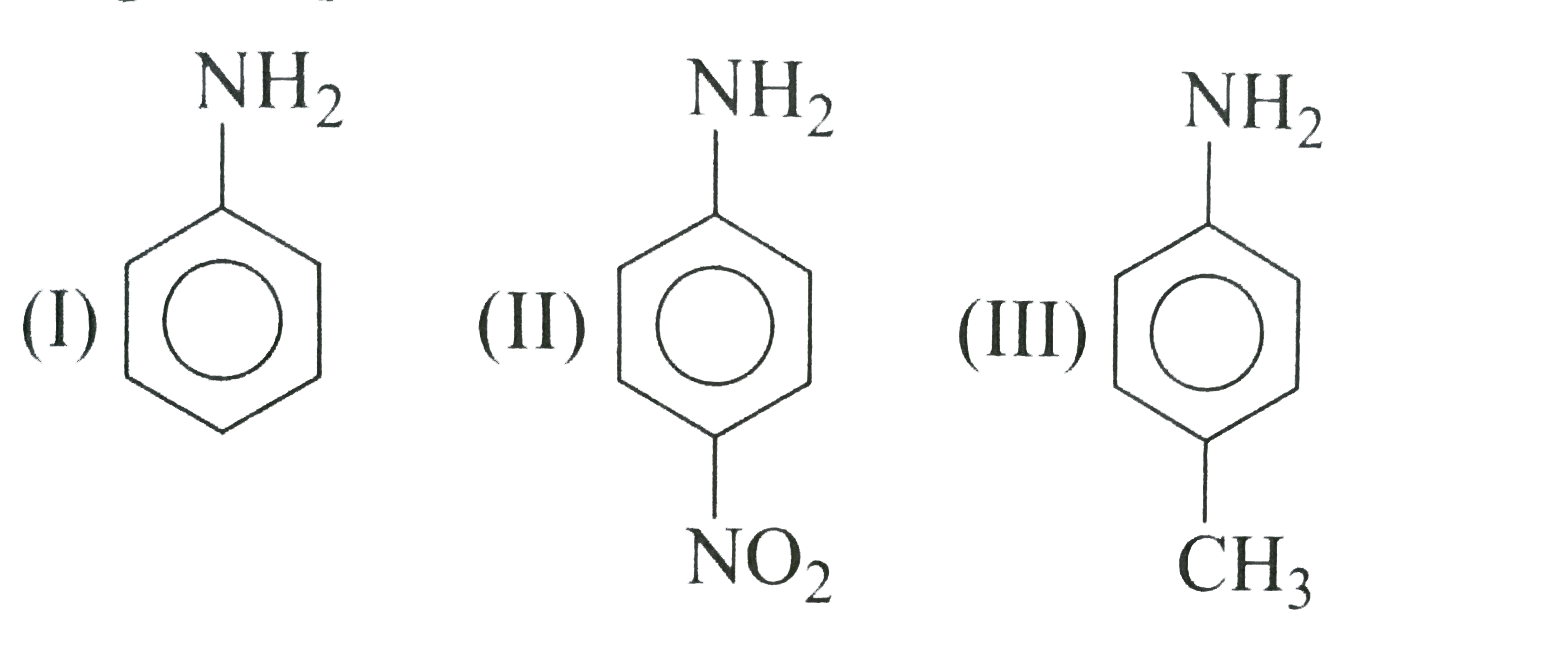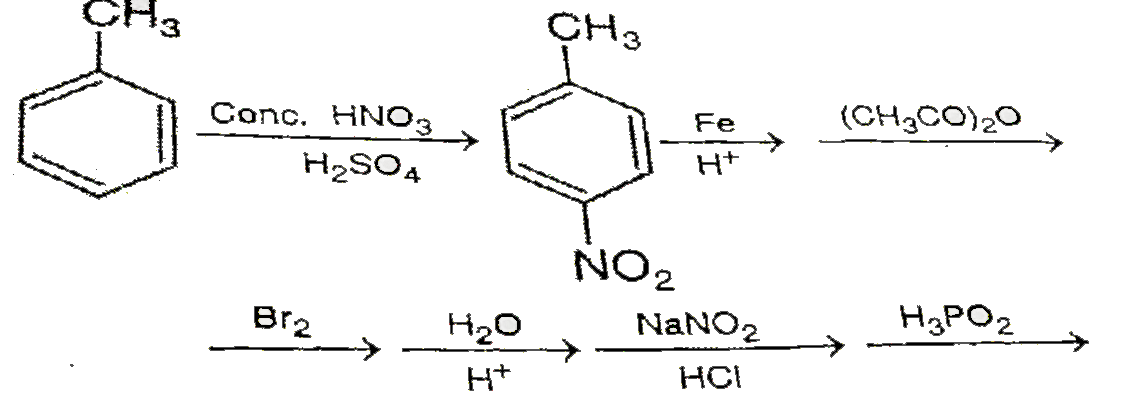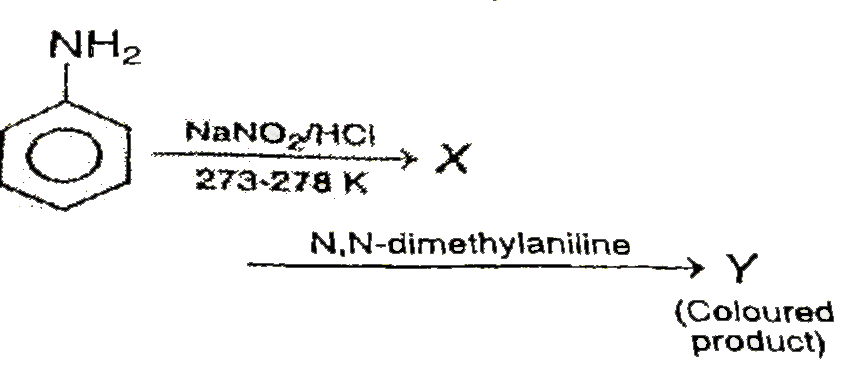Complete Solutions to Practice Exercise of chapter NITROGEN CONTAINING COMPOUNDS of Class 12 book with complete answers and questions
| Class 12 | CHEMISTRY |
| Chapter | NITROGEN CONTAINING COMPOUNDS |
| BITSAT GUIDE | Practice Exercise |
| Number Of Questions | 31 |
| Academic Year | 2023-24 |
Gabriel phthalimide synthesis can be used for the preparation of amine from
View SolutionHofmann's bromamide degradation reaction is shown by
View SolutionA positive carbylamine test is given by:
View SolutionWhat are the constituent amines formed when the mixture of I and II undergoes Hofmann's bromamide degradation?

View SolutionThe primary, secondary and tertiary amines can be best distinguished by
View Solution
Product of this reaction is
View SolutionWhich of the following compounds does not liberate nitrogen with `HNO_(2)`?
View SolutionAmong the following compounds the one that is most reactive towards electrophilic nitration is
View SolutionTowards electrophilic substitution, the most reactive species will be
View SolutionWhen aniline is treated with fuming sulphuric acid at 475 K, it gives
View Solution
The correct increasing order of basic strength for the following compounds is :
View SolutionAmino group, `-NH_(2)` is ortho, para-directing group in case of aromatic electrophilic substitution but nitration of aniline produce a good amount of m-nitroaniline. This is because
View SolutionReduction of aromatic nitro compounds using Fe and HCl gives
View SolutionThe relative order of basic character of the following compounds is

View SolutionWhich of the following amine does not react with Hinsberg reagent-
View SolutionWhen primary aminereacts with chloroform in ehthanolic `KOH` then the product is .
View SolutionTertiary nitro compounds do not tautomerise because
View SolutionWhen p-toluidine reacts with sodium nitrite and hydrochloric acid at 274 K, a crystalline precipitate is formed, with is boiled with water. The resulting compound obtained is
View SolutionThe reagent used to distinguish p-methylaniline from N-methylaniline is
View SolutionThe best reagent for converting 2-phenylpropanamide into 2-phenylpropanamine is
View SolutionConsider the following reaction sequence. The final product of this reaction sequence is

View SolutionConsider the following series of reactions

The compound Y is
View SolutionCompound A `(C_(3)H_(9)N)` reacts with benzene sulphonyl chloride to form a solid insoluble in alkali. The structure of compound A is
View SolutionAniline yields a coloured product Y through the following series of reaction:

The structure of Y is
View SolutionConsider the following statements:
Phenyl diazonium salts form azo dye with
I. aniline
II. Phenol
III. N, N - dimethyl aniline
IV. Anisole (methoxybenzene)
The correct statements is
View SolutionBenzylamine may be alkylated as shown in the following equation
`C_(6)H_(5)CH_(2)NH_(2)+R-XrarrC_(6)H_(5)CH_(2)NHR`
Which of the following alkyl halides is best suited for this reaction through `S_(N)` 1 mechanism?
View SolutionConsider the following reaction :

The above reaction is called
View SolutionIdentify the final product (z) in the following sequence of reactions
`C_(6)H_(5)COOHunderset((ii)PBr_(3))overset((i)LiAlH_(4))rarrXoverset(KCN)rarrYoverset(LiAlH_(4))rarrZ`
View SolutionHydrolysis of phenyl isocyanide forms :
View SolutionWhich of the following on reaction with nitrous acid followed by treatment with NaOH produces a blood red colouration?
View SolutionComplete the following reaction

View Solution
Practice Exercise questions and complete solutions for chapter NITROGEN CONTAINING COMPOUNDS of BITSAT GUIDE of Class 12